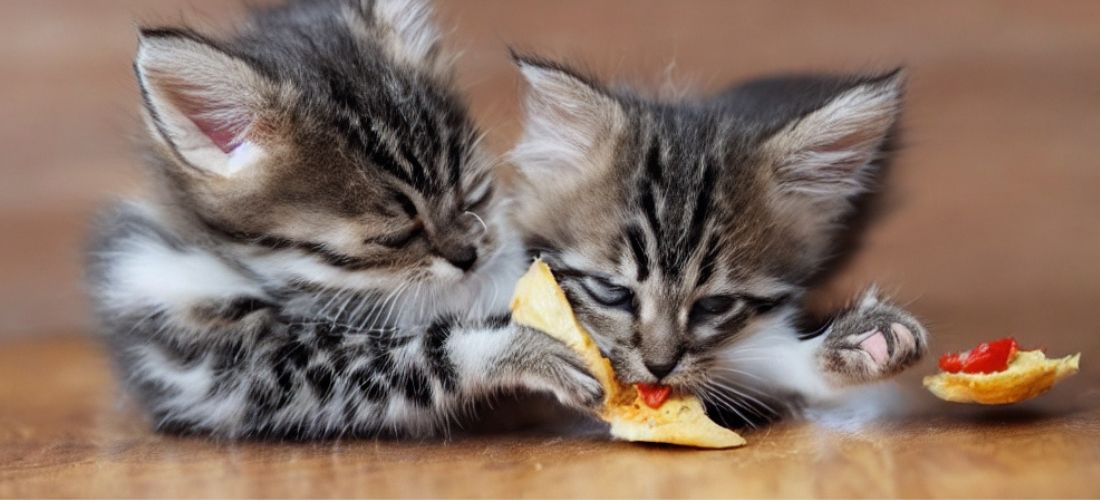What is the best food for kittens.In this comprehensive guide, we delve into the intricacies of kitten nutrition, deciphering labels, understanding their dietary requirements, and offering practical tips for feeding success. So, let’s embark on this journey to unravel the mystery of what truly constitutes the best food for our cherished feline companions.
As pet owners, we cherish the playful antics and endearing purrs of our beloved kittens. Yet, behind those adorable whiskers lies a vital aspect of care: nutrition. The question of what constitutes the best food for kittens is one that resonates with every responsible caregiver. It’s not merely about filling their bowls but ensuring they receive the essential nutrients crucial for their growth and well-being.
How Long to Feed Kitten Food?
Feeding kitten food is a crucial aspect of ensuring the proper growth and development of your furry friend. The duration for which you should feed kitten food depends on several factors, including the individual kitten’s growth rate, breed, and overall health. However, a general guideline is to continue feeding kitten-specific food until they reach maturity, which typically occurs around one year of age.
During the first few weeks of life, kittens rely solely on their mother’s milk for nourishment. If you’re caring for orphaned kittens or those weaned early, specialized kitten milk replacers can provide the necessary nutrients. Around three to four weeks of age, kittens can begin transitioning to solid food. Start with wet kitten food mixed with kitten milk replacer to ease the transition, gradually increasing the ratio of solid food to milk replacer.
Between four to six months of age, kittens experience rapid growth and development, requiring a diet rich in protein, fat, vitamins, and minerals. Kitten-specific formulas are formulated to meet these nutritional needs, providing the essential building blocks for healthy bones, muscles, and organs.
As kittens approach their first birthday, you can start transitioning them to adult cat food gradually. Mix small amounts of adult cat food with their kitten food over the course of a week or two until they are fully transitioned. Keep in mind that some larger breeds may continue to benefit from kitten food for a longer period, while smaller breeds may transition to adult food sooner.
Ultimately, it’s essential to monitor your kitten’s growth and weight throughout this transition period. Consult with your veterinarian for personalized advice based on your kitten’s specific needs and health status. By providing a balanced diet tailored to their developmental stage, you’ll ensure your kitten grows into a healthy and happy adult cat.
What is the best food for kittens ?
Choosing the best food for your kitten is vital for their health and well-being, as it sets the foundation for their growth and development. Here’s a detailed overview of what to look for when selecting the ideal nutrition for your furry friend:
1. High-Quality Protein:
Kittens require a diet rich in high-quality protein to support their rapid growth and development. Look for kitten foods with animal-based protein sources such as chicken, turkey, or fish. These proteins provide essential amino acids necessary for building strong muscles, bones, and tissues.
2. Essential Fatty Acids:
Essential fatty acids, such as omega-3 and omega-6 fatty acids, are crucial for a kitten’s overall health. These fats support brain development, promote a shiny coat, and aid in maintaining healthy skin. Choose kitten foods that contain sources of healthy fats, such as fish oil or chicken fat.
3. Balanced Nutrition:
Opt for kitten foods that are labeled as “complete and balanced,” meaning they contain all the essential nutrients in the right proportions for kittens. These foods provide a well-rounded diet that meets all of your kitten’s nutritional needs.
4. Age-Appropriate Formulas:
Consider your kitten’s age when selecting their food. Young kittens may require wet or canned food, which is easier for them to eat and digest. As they grow older, you can introduce dry kibble into their diet, but ensure it’s formulated specifically for kittens.
5. Avoid Fillers and Artificial Ingredients:
Steer clear of kitten foods that contain fillers, artificial colors, flavors, or preservatives. These ingredients offer little to no nutritional value and may even be harmful to your kitten’s health.
When to switch from kitten to cat food ?
Transitioning from kitten to cat food is an important step in your furry friend’s development, and timing is key to ensure they continue to receive the appropriate nutrition. Here’s a guideline on when to make the switch:
1. Age:
The general recommendation is to transition kittens to adult cat food around one year of age. By this time, most cats have reached maturity, and their nutritional needs begin to stabilize. However, individual cats may mature at different rates, so it’s essential to consider factors such as breed and size when determining the timing of the transition.
2. Growth Rate:
Some larger breeds of cats, such as Maine Coons, may continue to grow and develop beyond one year of age. In these cases, it may be beneficial to keep them on kitten food for a longer period to support their growth. Conversely, smaller breeds or cats that have reached their full size may be ready to transition to adult food sooner.
3. Body Condition:
Monitor your cat’s body condition throughout the transition period. If your cat is maintaining a healthy weight and body condition on kitten food, there may be no rush to switch to adult food. However, if your cat starts to become overweight or shows signs of nutritional deficiencies, it may be time to make the switch.
4. Consult with Your Veterinarian:
Your veterinarian can provide personalized guidance on when to transition your cat from kitten to adult food. They can assess your cat’s individual needs and help you determine the best timing for the transition. Additionally, they can recommend specific brands or formulas that meet your cat’s nutritional requirements for best kitten food.
5. Gradual Transition:
When transitioning your cat to adult food, do so gradually over the course of about a week to minimize digestive upset. Start by mixing small amounts of adult food with their kitten food and gradually increase the proportion of adult food each day until they are fully transitioned.
By considering your cat’s age, growth rate, body condition, and consulting with your veterinarian, you can determine the optimal time to transition from kitten to cat food. Providing the right nutrition at each stage of their life will help ensure your cat remains healthy and happy for years to come.
Conclusion
Choosing the best food for kittens is paramount for their overall health and well-being. By prioritizing high-quality protein, essential fatty acids, balanced nutrition, and age-appropriate formulas, you can provide your furry friend with the nutrients they need to thrive during their crucial developmental stages. Consulting with your veterinarian and monitoring your kitten’s growth and health closely will ensure you make informed decisions regarding their diet. With the right nutrition, your kitten will grow into a healthy, happy, and vibrant adult cat, ready to enjoy a long and fulfilling life by your side.
FAQs
Should kittens eat wet or dry food?
Kittens should primarily eat wet food because it provides hydration and is easier for them to digest. However, dry food can be given in moderation for dental health and variety in texture.
Can kittens drink milk?
Kittens can drink milk, but it’s important to note that many cats are lactose intolerant, so cow’s milk might upset their stomachs. Special lactose-free milk for cats or kitten formula are safer options.

